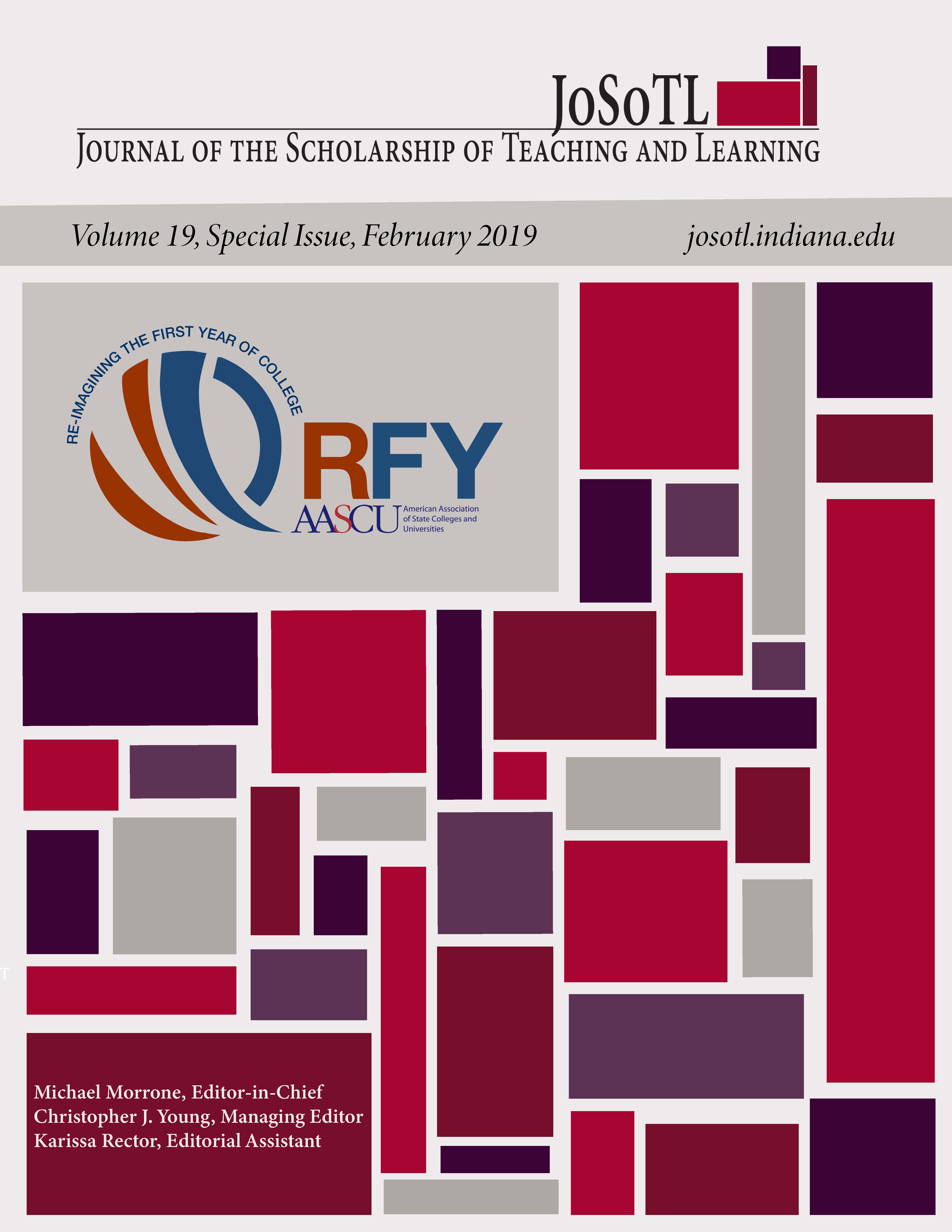Empowering Faculty to Support Academic Persistence through a Blended, Scholarship-Based Faculty Professional Development Program: The Persistence Scholars Program
Main Article Content
Abstract
While it is well-known that faculty-student interaction is key to student success, few institutions have directly leveraged faculty in supporting academic persistence. Many myths about persistence proliferate, and faculty can unwittingly hinder persistence by implementing the wrong kinds of practices. Faculty are most empowered to support student persistence when they understand and care about this issue. They are also better equipped to help when they have a good, current command of the body of knowledge relating to persistence. To address this, we created a blended faculty development program to engage faculty in the scholarship of academic persistence, addressing myths and misconceptions about persistence, and expanding understanding of what it is like to be a first-year student at our university. The Persistence Scholars Program engaged a total of 32 faculty over two semesters, beginning with pre-readings and an in-person daylong workshop followed by an eight or ten-week course. The curriculum was built around a central text, Completing College by Vincent Tinto, and selected empirical and germane articles. Participants engaged in online discussions and two experiential projects, including one that asked them to complete an activity that would enhance their understanding of first-year students’ experiences. Assessments of this program focused on participant ratings of target competencies (e.g., the ability to identify and dispel myths about why students persist), perception of usefulness of different specific assignments and materials, and suggestions for how the program can be refined for future cohorts.
Downloads
Article Details
- Authors retain copyright and grant the Journal of the Scholarship of Teaching and Learning (JoSoTL) right of first publication with the work simultaneously licensed under a Creative Commons Attribution License, (CC-BY) 4.0 International, allowing others to share the work with proper acknowledgement and citation of the work's authorship and initial publication in the Journal of the Scholarship of Teaching and Learning.
- Authors are able to enter separate, additional contractual agreements for the non-exclusive distribution of the journal's published version of the work (e.g., post it to an institutional repository or publish it in a book), with an acknowledgement of its initial publication in the Journal of the Scholarship of Teaching and Learning.
- In pursuit of manuscripts of the highest quality, multiple opportunities for mentoring, and greater reach and citation of JoSoTL publications, JoSoTL encourages authors to share their drafts to seek feedback from relevant communities unless the manuscript is already under review or in the publication queue after being accepted. In other words, to be eligible for publication in JoSoTL, manuscripts should not be shared publicly (e.g., online), while under review (after being initially submitted, or after being revised and resubmitted for reconsideration), or upon notice of acceptance and before publication. Once published, authors are strongly encouraged to share the published version widely, with an acknowledgement of its initial publication in the Journal of the Scholarship of Teaching and Learning.
References
Barr, R, & Tagg, J. (1995). From teaching to learning: A new paradigm for undergraduate education. Change, November-December, 13.
Commission on the Future of Undergraduate Education (2017). The Future of Undergraduate Education, The Future of America. Cambridge, MA: American Academy of Arts and Sciences.
Condon, W., Iverson, E. R., Manduca, C. A., Rutz, C., & Willett, G. (2016). Faculty development and student learning: Assessing the connections. Bloomington: Indiana University Press.
Garrison, D.R., & Vaughan, N.D. (2008). Blended learning in higher education: Framework, principles, and guidelines. San Francisco: Wiley.
Kuh, G. D., Kinzie, J., Buckley, J. A., Bridges, B. K., & Hayek, J. C. (2006). What matters to student success: A review of the literature. Retrieved from nces.ed.gov
Miller, M. D., & Scarnati, B. (2014). Engaging faculty for student success: The First Year Learning Initiative. Teacher-Scholar: The Journal of the State Comprehensive University, 6, 1–14.
Nilson, L. B. (2015). Specifications grading: Restoring rigor, motivating students, and saving faculty time. Sterling, VA: Stylus Publishing.
Talbert, R. (2017). Flipped learning: A guide for higher education faculty. Sterling, VA: Stylus.
Tinto, V. (2012). Completing college: Rethinking institutional action. Chicago: University of Chicago Press.
Umbach, P. D., & Wawrzynski, M. R. (2005). Faculty do matter: The role of college faculty in student learning and engagement. Research in Higher Education, 46, 153–184.
